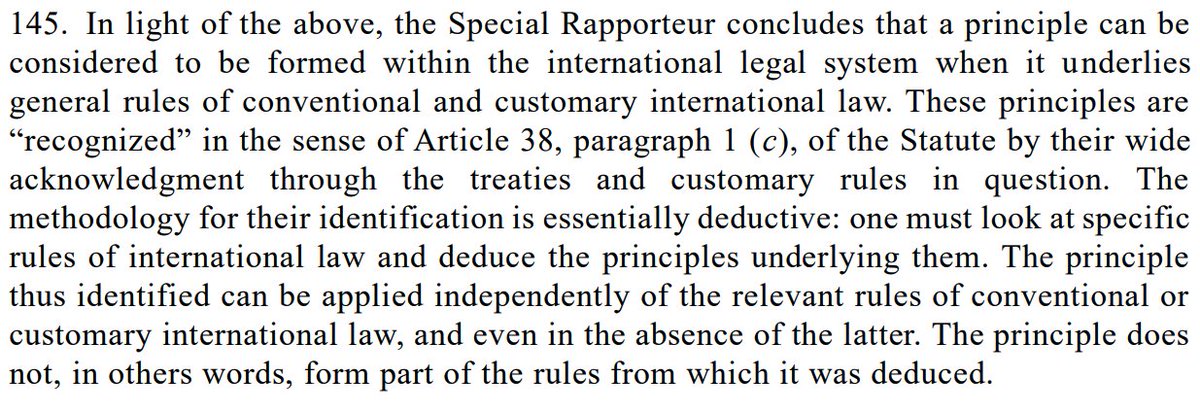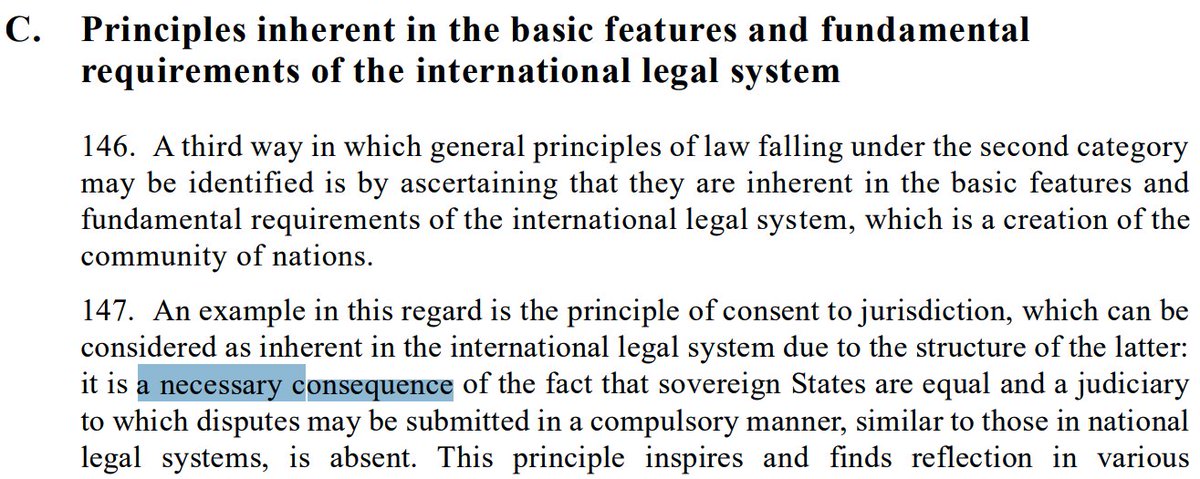The headline is that general principles can be formed and recognized without being expressly stated. So the method for identifying their existence and content is crucial. 9/
The SR calls this method "deductive," though it& #39;s better thought of as abductive (inference to the best explanation). 10/
Now, there is some ambiguity. Is recognition of a principle a kind of mental state, to be "inferred from" the rules it underlies? Or is recognition of a principle an act, of acknowledgment through treaty and customary practice? 11/
Fundamentally, do underlying principles exist, with their content, in the & #39;minds& #39; of States prior to the rules? Or do these principles exist because they fit and justify the rules, giving them coherence and integrity?
In short: Hart or Dworkin? The ILC must pick a side! Jk. 12/
In short: Hart or Dworkin? The ILC must pick a side! Jk. 12/
The last category, "Principles inherent in ... the international legal system," raises similar questions. 13/
Is the view that States & #39;subjectively& #39; recognize these principles, and their content, without expressing them? And we can infer their recognition by charitably assuming that States recognize the logical* implications of their commitments? 14/
Or is the view that States are bound by the logical* implications of their commitments, whether or not they & #39;subjectively& #39; recognize them?
[Kelsen spins in grave] 15/
[Kelsen spins in grave] 15/
The "*" marks the lingering question: is it really logical necessity that& #39;s doing the work here, or some broader notion of normative (dare I suggest moral?) coherence? 16/
The best clue is para 168, which suggests that the & #39;underlying& #39; and & #39;necessary consequence& #39; relations are constitutive, not epistemic. They ground the existence and content of general principles. They& #39;re not just evidence. 17/

 Read on Twitter
Read on Twitter







